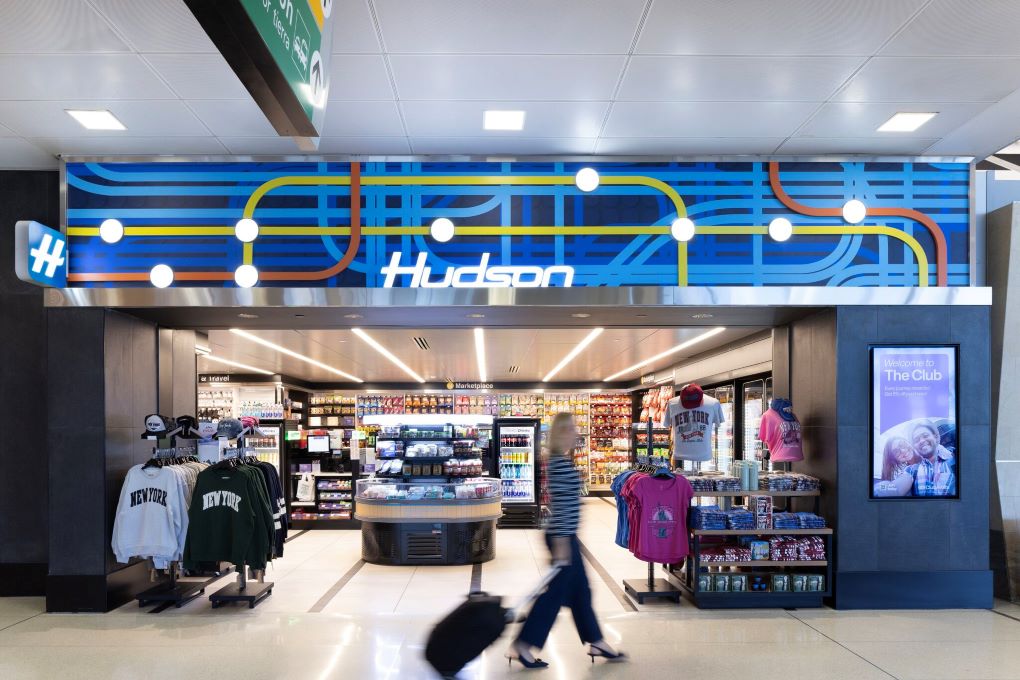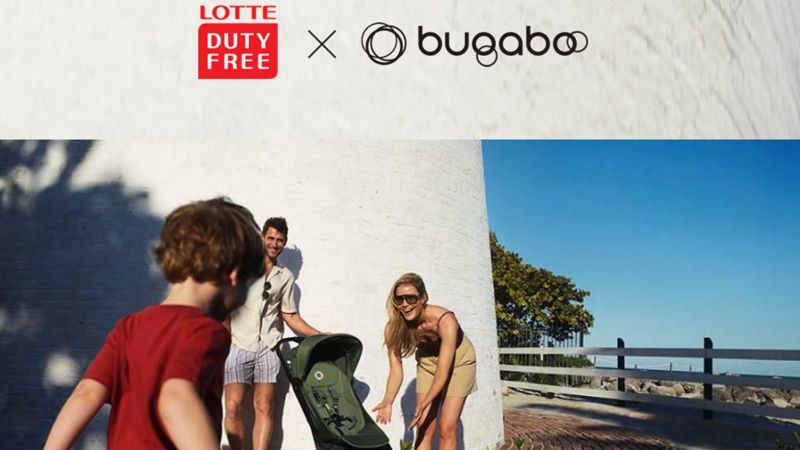It is a story of survival against seemingly insuperable challenges. A story of cheating the odds. And of cheating death.
It is the very personal story of travel retail consultant, and WanderSafe personal protection device developer, Stephenie Rodriguez, who is recovering from a three-month battle against life-threatening cerebral malaria and septic shock.
According to medical specialists, the 50-year-old technology entrepreneur is lucky to be alive. Stephenie caught the disease after being bitten by an infected mosquito during a WanderSafe business trip to Nairobi in September.

She had no idea she was ill until she collapsed during another business trip to the US later that month. Stephenie spent over a week in a coma in a Boston hospital where she had the last rites administered three times.
Her many friends in the travel retail industry were advised via a WhatsApp group set up by her friend and renowned travel retail executive Adil Raihani just how desperate the situation was (Adil took a flight to the US to visit Stephenie in hospital, half-expecting the worst, and personally witnessed the start of her miracle recovery).
She has been in hospitals in the US and in the St Vincent’s Private Hospital in Sydney for a total of 77 days and faces traumatic amputation of her toes and heel reconstruction. Recovery and rehabilitation will take up to six months; she will have to learn to walk again.
The fact that Stephenie is alive was described as “absolutely ridiculous” by her friend and medical advisor Dr Zac Turner.
Cerebral malaria is the severest complication of the disease where the parasite infects the spinal fluid. One in five diagnosed cerebral malaria patients die, though the true mortality rate is likely higher.
“I want to walk on my own two feet again; it’s not going to be easy and I need to start thinking about prosthetics and custom-made pieces for my toes and heels”
The Moodie Davitt Report spoke with Stephenie last week. “I am very grateful to be alive,” she said. “I was discharged from hospital one week ago as over the holiday season they do not keep non-urgent cases in the wards. The operations are scheduled to take place in the New Year.”
Stephenie quoted her 13-year-old son Constantine-Antonio who, she said, reminded her that “life is 10% what you are given and 90% your attitude around it”.
“There have been a lot of tears but I know I have to stay positive and focused. I get to choose wisely now; I believe outlook is a choice.”
A GoFundMe fundraising page has been set up to support Stephenie in areas of her treatment not covered by her medical insurance.
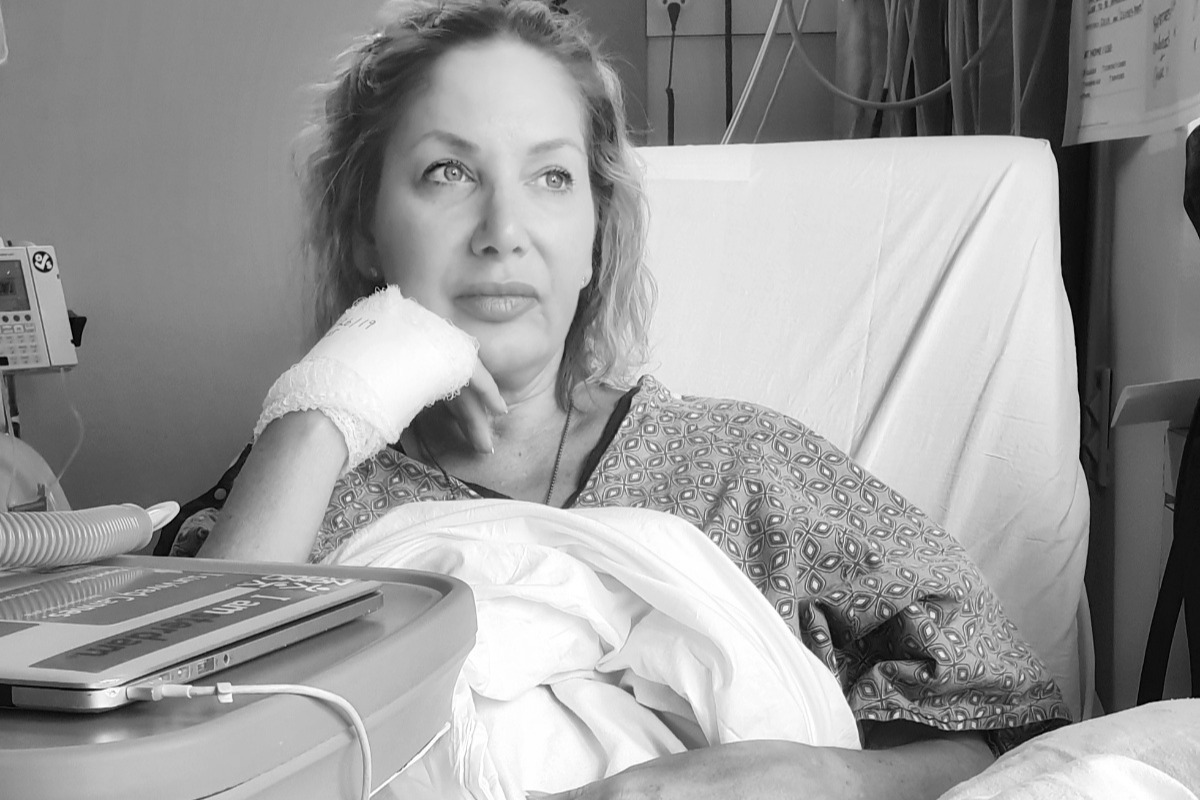
Stephenie emphasised the importance of travel insurance which covered her medical expenses in the US and repatriation to Australia. She also mentioned the support of travel retail associates and friends. “The great outpouring of affection and wishes has humbled me.
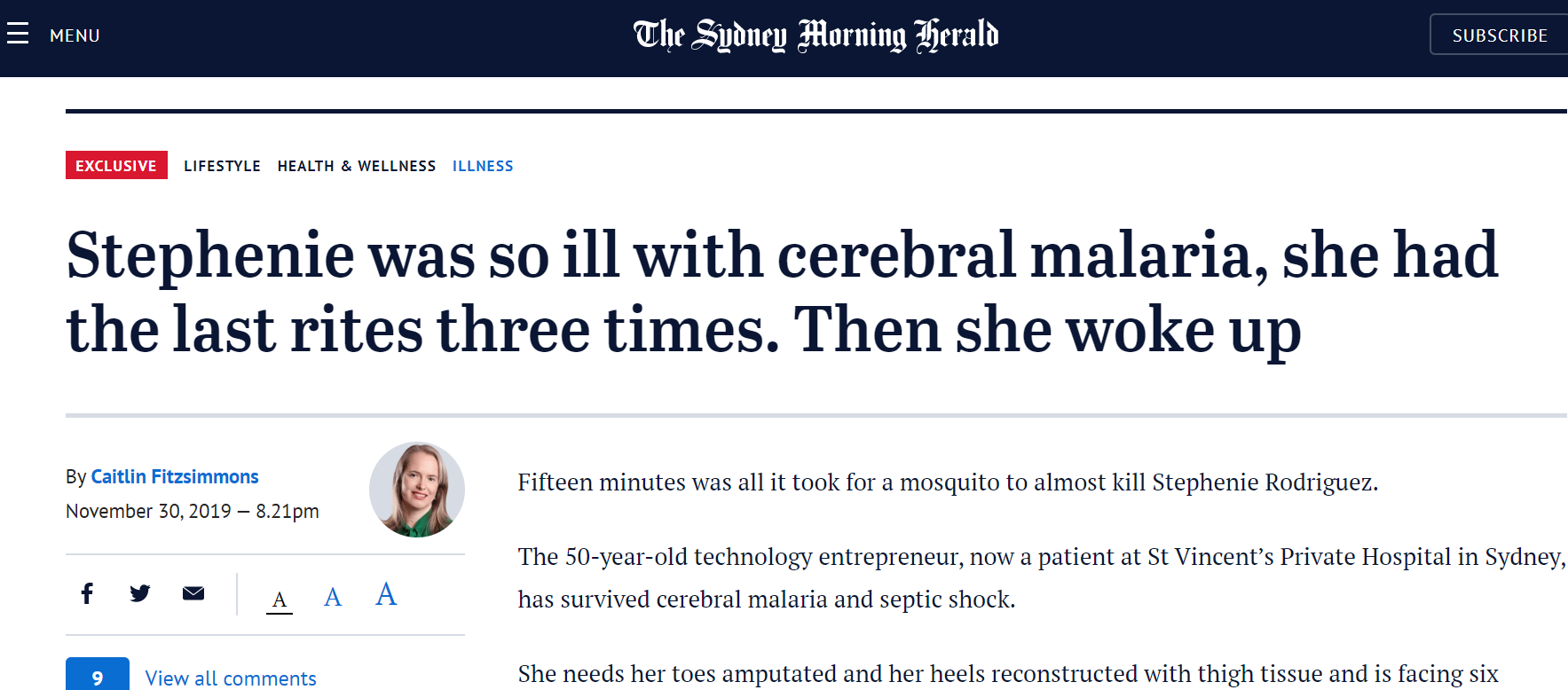
“I want to walk on my own two feet again; it’s not going to be easy and I need to start thinking about prosthetics and custom-made pieces for my toes and heels.
“I just have to take one day at a time at the moment; there is no speedy recovery.”
A GoFundMe fundraising page has been set up to support Stephenie in areas of her treatment not covered by her medical insurance.
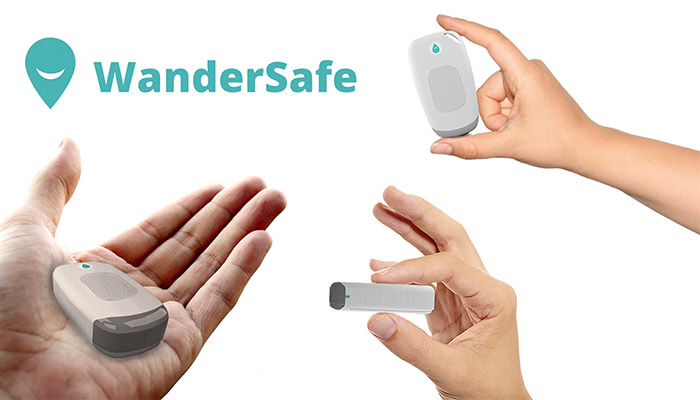
“I hate the isolation of hospitals and when you go from being able to disabled so suddenly it is a great shock. But my supporters and WanderSafe investors are behind me and this will not stop me in my mission to spread the word and importance of WanderSafe. If I can’t save my own life, how can I continue to save the lives of women through WanderSafe?”
Stephenie outlined her development of the WanderSafe device in an interview with The Moodie Davitt Report interview which can be viewed here.






